Did you know Uganda is home to over 1,070 bird species—more than any other country in Africa? Discovering the best time to visit Uganda could transform your safari and wildlife adventure into the trip of a lifetime.
Understanding the Best Time to Visit Uganda for Your Journey
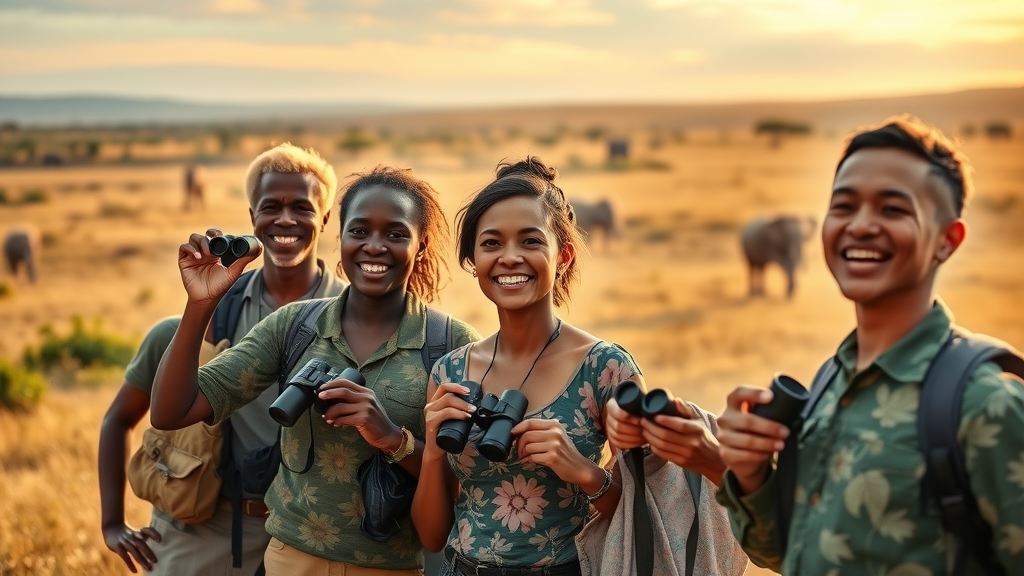
Timing is everything when you plan your trip to Uganda . The country’s diverse climate and multiple seasons each offer unique benefits, impacting both your comfort and what you’ll experience. The best time to visit Uganda isn’t one-size-fits-all—it depends on your interests, whether that’s gorilla trekking, a Uganda safari through iconic parks like queen elizabeth national park , or simply soaking up Africa’s natural beauty. Travel seasons in Uganda not only influence animal sightings but can also affect the number of tourists, road conditions, and prices, shaping your trip in unexpected ways.
For those new to visiting Uganda , understanding how the country’s climate varies across regions is crucial. Western Uganda, for example, enjoys a cooler equatorial climate, while northern areas can be much drier and hotter. Knowing the differences between the dry season and wet season helps you match your expectations with reality, maximizing wildlife viewings and activities like the gorilla trek . Whether you’re an adventure enthusiast or seeking a peaceful escape, picking the optimal time to visit will ensure a memorable journey.
- What travel seasons in Uganda mean for your experience
- How the best time to visit Uganda varies for different activities and destinations
- Climate variations across regions that impact your trip planning
What You’ll Gain by Knowing the Best Time to Visit Uganda
Mastering the best time to visit Uganda isn’t just about optimal weather—it’s about ensuring your travel dreams align with budget, wildlife, and personal preferences. With a little forethought, you can optimize costs, time, and experience.
- Save money and avoid crowds by smart timing
- Maximize wildlife encounters and safari experiences
- Choose the ideal window for gorilla trekking and bird watching
Traveling during off-peak or shoulder seasons can significantly lower your expenses, from safari tour packages to accommodation rates. Moreover, well-timed travel increases your chances of seeing rare animals, participating in special events, and capturing extraordinary photos—especially if you’re eyeing the iconic gorilla trek or epic game drives in national parks .
Best Time to Visit Uganda: Overview of Seasons and Climate
| Season | Months | Weather | Key Activities |
|---|---|---|---|
| Long Dry Season | June to September | Less rainfall, ideal for wildlife viewing | Uganda safari, gorilla trekking |
| Short Dry Season | December to February | Dry, sunny | Gorilla trek, chimpanzee tracking |
| Long Wet Season | March to May | Heavy rains | Bird watching, lush landscapes |
| Short Wet Season | October to November | Showers | Photography, quieter parks |
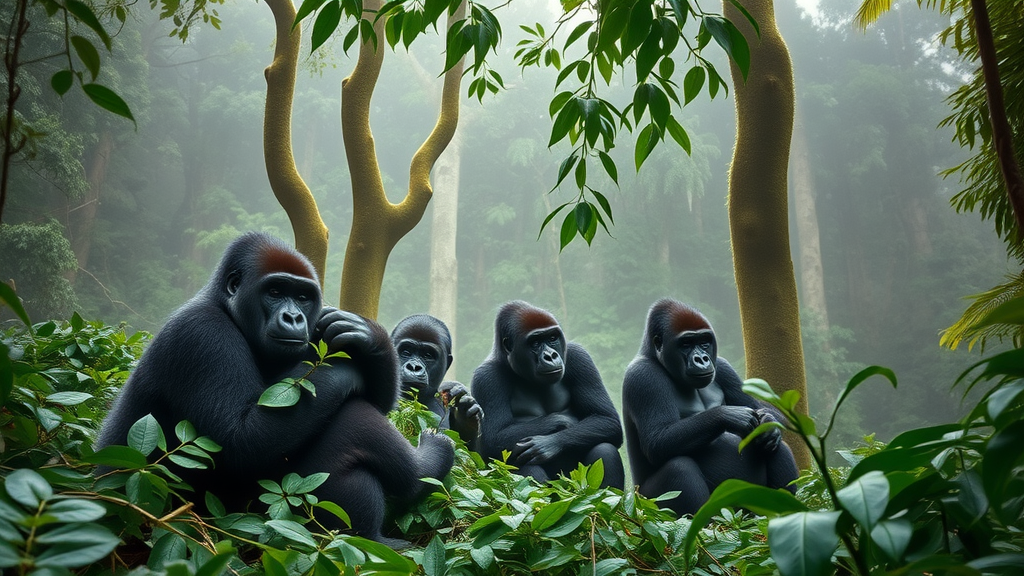
Uganda experiences two distinct dry seasons and two wet seasons each year, with the dry periods generally favored for game drives and primate tracking. Average temperatures stay warm year-round, but rainfall patterns can seriously affect which activities are available. During the dry season (June–September, December–February), animal sightings increase as wildlife congregates at water sources, and forest trails become easier for trekking to see mountain gorillas or chimpanzees. The wet season (March–May, October–November) brings lush, vibrant landscapes and is a great time for birders chasing rare, migratory species.
If you’re planning your trip around gorilla trekking, note that permit availability, trail conditions, and overall comfort are shaped by the season. Meanwhile, vivid green backdrops and lower traveler numbers can make the rainy season unexpectedly rewarding. The key takeaway: By aligning your trip with Uganda’s distinctive climate windows, you set yourself up for a richer, less crowded, and more affordable adventure.
Dry Season: The Best Time to Visit Uganda for Wildlife and Adventure
Why the Dry Season Is the Top Time to Visit Uganda
- Animal visibility and movement patterns during dry periods
- Reduced risk of muddy roads and trail closures
- Perfect conditions for queen elizabeth national park safaris
The dry season is often considered the best time to visit Uganda for a safari tour or wildlife experience. With rainfall at a minimum, the country’s famous game parks—such as the beloved queen elizabeth national park —become much easier to navigate. Water holes attract herds of buffalo, elephant, and other creatures, leading to more frequent and dramatic wildlife sightings. Better visibility and thinner vegetation also bring photographers and safari lovers flocking to Uganda each year.
Accessibility is another huge bonus. During the dry month s of June through September and December through February, park roads and forest trails are less likely to be blocked by flooding or slippery mud, which means gorilla trekking, game drives, and nature walks are all more predictable. These dry periods coincide with the peak season for tour operators and tend to book up quickly, especially for sought-after gorilla trek permits. Yet, the trade-off is absolutely worth it for the exceptional wildlife viewing and comfortable travel.
The dry season (June–September and December–February) is widely regarded as the best time to visit Uganda for gorilla trekking and wildlife viewing.
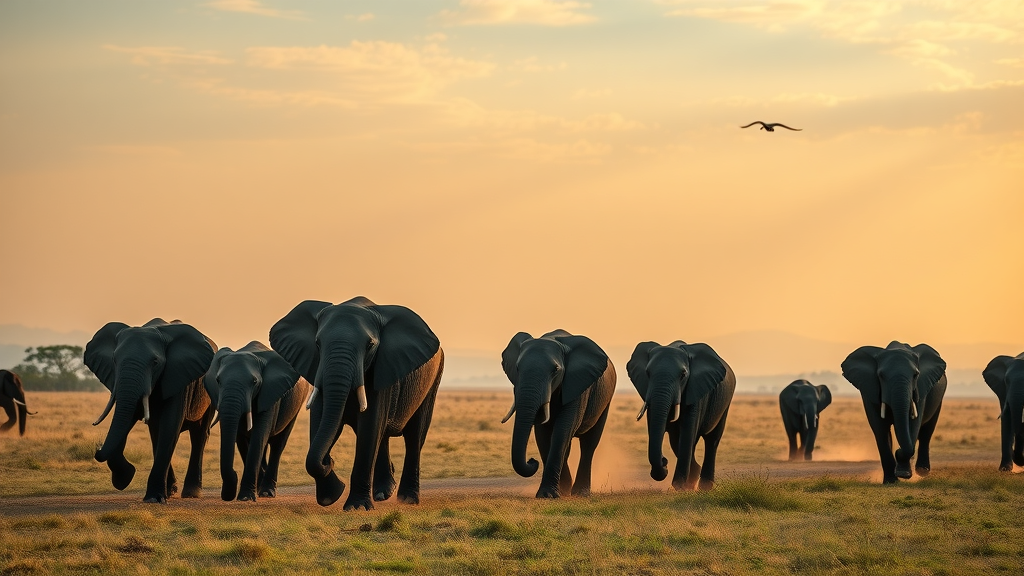
Whether you’re exploring the savannahs of queen elizabeth national park or the rolling hills around lake mburo , the dry season is when Uganda truly shines for nature lovers. Not only are the days reliably sunny and pleasant, but the dramatic wildlife spectacles and buzzing safari atmosphere make it a great time to immerse yourself fully in the magic of East Africa.
Wet Season: Visiting Uganda’s Hidden Gems and Lush Landscapes
Is the Wet Season a Good Time to Visit Uganda for Photography and Birdwatching?
- Pros and cons of traveling during wet months
- Peak bird watching opportunities and low tourist numbers
- Vivid greenery in elizabeth national park and lake mburo regions
The wet season in Uganda may scare some travelers away—but for those in the know, it’s a great time for a quieter, deeply rewarding adventure. The landscape bursts with life in the rainy season , as waterfalls surge and plant life flourishes. Birdwatchers will find this the best time to visit Uganda; parks are teeming with migratory birds, and rare species like the shoebill stork are more easily spotted. Wildlife tends to spread out due to the abundance of water, making animal tracking a bit more challenging, but the sheer beauty of the parks—especially the green expanses of elizabeth national park and lake mburo —is simply breathtaking.
Fewer crowds are another draw, leading to a more personal connection with nature and often better rates on both tours and accommodations. Travelers who choose the wet months will need to prepare for sudden downpours, and some national parks may close certain lodges or routes temporarily due to weather conditions. However, if you’re a photographer or nature enthusiast, the lush scenery and soft, diffused light of the wet season create unforgettable memories.
Best Months for Uganda Safari: Optimal Windows for Gorilla Trekking and Game Drives
How to Sync Your Gorilla Trek with the Best Time to Visit Uganda
- High-permit competition and booking tips
- Key differences: gorilla trekking versus general uganda safari in dry versus wet seasons
- Seasonal wildlife in queen elizabeth national park
If your dream is a gorilla trek or safari tour in Uganda’s lush national parks, advanced planning is vital. Permits for gorilla trekking —especially in dry months—are limited and sell out months ahead. The best windows run from June through September and December to February, when forests are drier, undergrowth is thinner, and the experience is safest and most enjoyable. Although game viewing is good year-round, heavy rains between March and May can make hiking trails and park roads muddy, occasionally causing delays or cancellations.
For general safaris, animal migration within parks like queen elizabeth national park also peaks during the dry season as wildlife gather near water sources. In contrast, wet months can see sparser animal groupings but allow for more intimate encounters, fewer crowds, and tranquillity. If you want the classic Uganda safari experience—golden savannahs, plentiful wildlife, and breathtaking sunsets—stick to the dry spells. For photographers and birdwatchers, the rainy season means vibrant plumage on display and unique sightings of migratory birds.
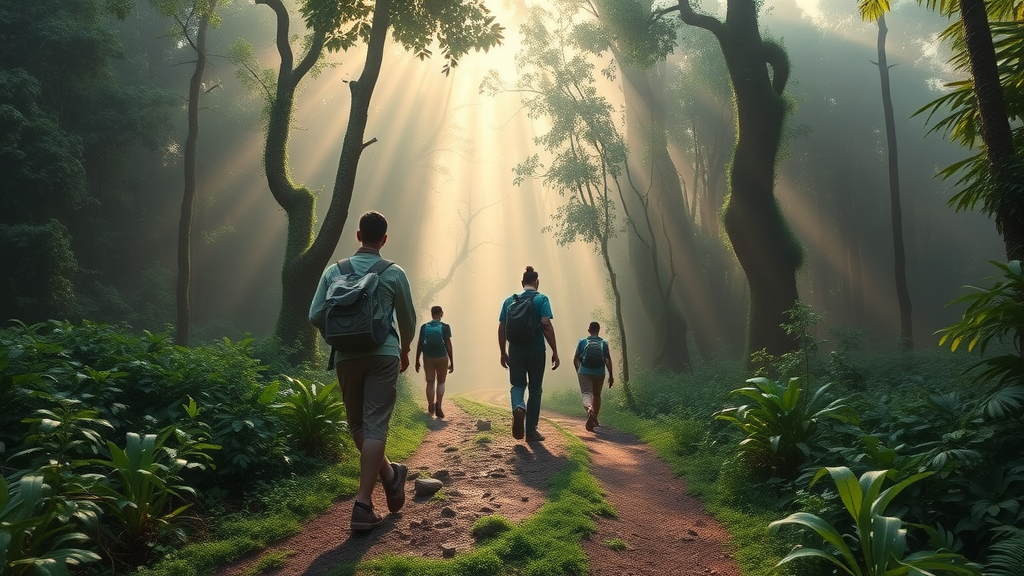
How Uganda’s Major National Parks Influence the Best Time to Visit Uganda
- queen elizabeth national park: year-round game viewing
- lake mburo: unique wet and dry season attractions
- Murchison Falls and Kibale: weather impact on your safari tour
Each of Uganda’s national parks offers its own prime windows for exploration. Queen Elizabeth National Park stands out for nearly year-round game viewing, thanks to its varied landscapes—lakes, savannah, and forests—that host diverse wildlife in all seasons. Whether you’re visiting during the dry seasons or wet spells, you’ll seldom find a dull moment here.
Lake Mburo has dual personalities: In the dry season , it’s unbeatable for zebra and hippo spotting, while the rainy months bring out stunning butterfly and bird life. Murchison Falls and Kibale experience more pronounced shifts—during heavy rains, boat tours, chimpanzee tracking, and certain game drives may face interruptions. Reviewing each park’s strengths by season lets you match your itinerary to your travel passions while guaranteeing the best time to visit Uganda for you.
A Month-by-Month Breakdown: The Best and Worst Times to Visit Uganda
| Month | Season | Why Go? | Any Drawbacks? |
|---|---|---|---|
| January | Dry | Excellent for wildlife, birding | Peak demand |
| March-May | Wet | Lush scenery, budget travel | Heavy rains, some lodges close |
| June-September | Dry | Prime safari, gorilla permits | None |
| October-November | Wet | Green landscapes, birdwatching | Sudden downpours |
| December | Dry | Festive period, safari tours | Busy parks |
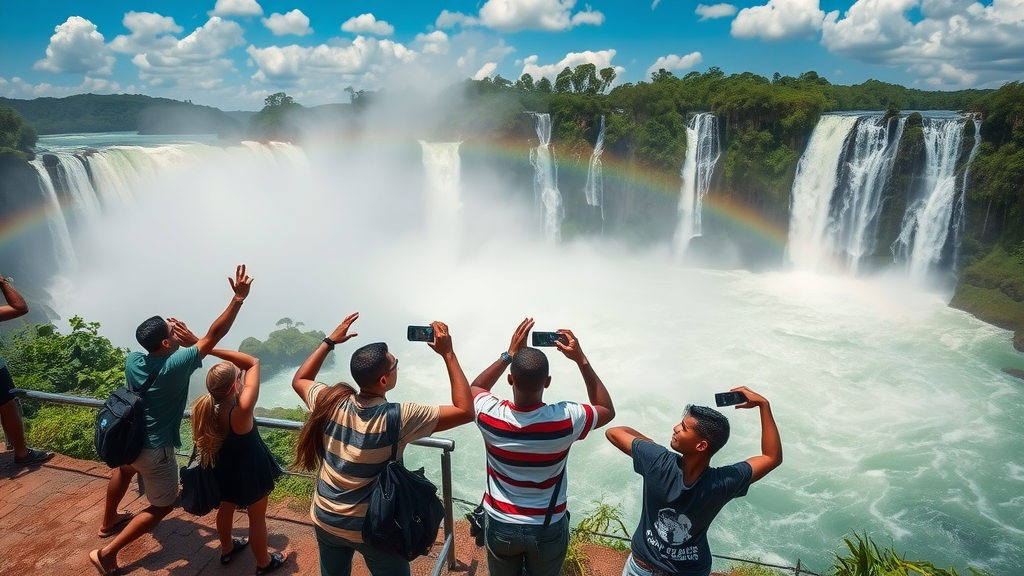
The best time to visit Uganda ultimately depends on which month aligns with your priorities. January and February see dry, sunny days and a concentration of wildlife at water sources, though tourism is at its highest. March to May ’s rainy season delivers lush green scenery and deals for savvy budget travelers, but some lodges in remote areas may shutter. June to September is widely heralded as the perfect safari window, while October and November usher in burst of color, quieter parks, and superb birding. December is another dry, festive time, with higher visitor numbers but fantastic game drives and a celebratory mood.
People Also Ask: What Is the Best Month to Go to Uganda?
- June and July are generally considered the best time to visit Uganda, offering pleasant weather and excellent wildlife viewing opportunities. December and January are also popular for their dry, sunny conditions.
If you’re deciding when to go, June and July consistently rank as favorite months among safari experts. These dry months bring exceptional animal activity, optimal hiking conditions, and fewer mosquitoes, ensuring an all-around special experience for anyone planning to visit Uganda .
People Also Ask: What Are the Best Months for Safari in Uganda?
- The optimal months for safari in Uganda are June to September and December to February, which are the main dry periods ensuring better animal spotting and more comfortable travel.
Choose your Uganda safari for the periods between June to September and December to February . These stretches offer top-tier wildlife encounters and smoother logistics, from game drives to gorilla treks, making them the obvious choice for classic African adventures.
People Also Ask: What Is the Best Time of Year to See Gorillas in Uganda?
- The best time of year to see gorillas in Uganda is during the dry seasons, especially June to September and December to February, when forest trails are less muddy and viewing visibility is high.
For those intent on seeing mountain gorillas , it’s wise to plan for the dry seasons—hikes are safer, sightings are better, and you’ll come home with incredible photos from your gorilla and chimpanzee adventure.
People Also Ask: What Is the Hottest Month in Uganda?
- February is typically the hottest month in Uganda, with temperatures often reaching their peak. However, weather is generally warm year-round in most regions.
February stands out as Uganda’s hottest month, but don’t let the warmth deter you. The country’s elevated terrain keeps conditions pleasant compared to other destinations in East Africa —even in the peak of summer.
Essential Tips for Planning Your Trip to Uganda at the Best Time
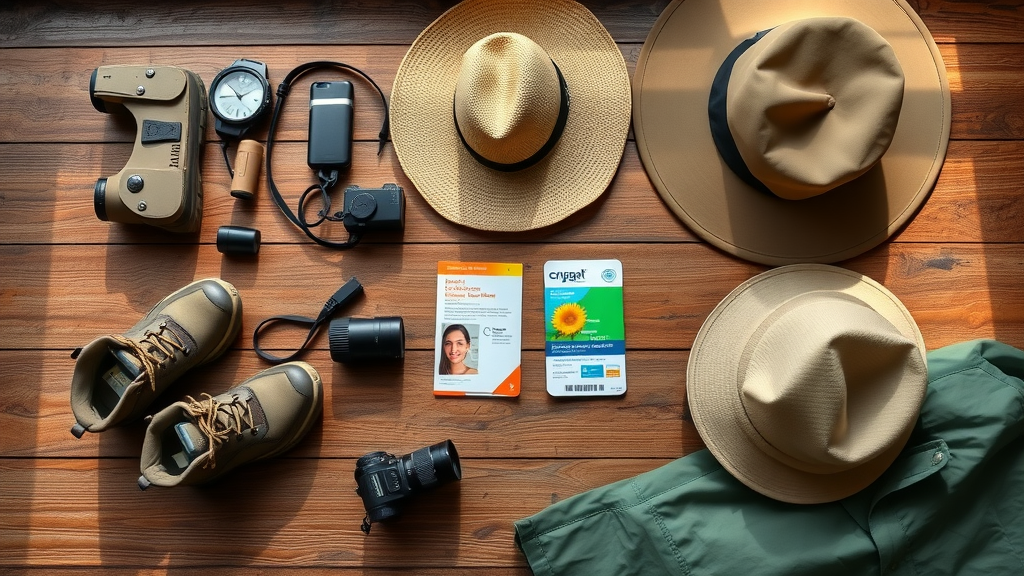
- How to secure gorilla trek permits and safari bookings
- Packing essentials for dry and wet seasons
- Strategic advice for avoiding crowds and peak pricing
Ready to maximize your trip to Uganda ? First, book your gorilla trek permit and safari accommodations six to twelve months in advance, especially for the dry season—these are in high demand. Next, pack light but smart, including essentials for both sunny days and rainy surprises: hiking boots, rain gear, high-SPF sunscreen, insect repellent, layers, and your travel documents. To beat crowds and save money, target the start or end of the dry months, or opt for lesser-known parks with equally captivating wildlife.
Remember that a flexible attitude goes a long way in Uganda, where last-minute weather shifts can occur even in the best months. Stay in touch with tour operators and local guides who know the latest conditions and can steer your adventure as needed.
Expert Insights: Best Time to Visit Uganda According to Safari Guides
“Our guests get the most out of Uganda safari tours and national parks during the dry months, especially for gorilla trekking adventures.” — Senior Uganda Safari Guide
Seasoned guides emphasize the unrivaled views, wildlife, and comfort of travel during the dry season—especially when trekking to see mountain gorillas and chimpanzees. Making decisions with their expert input can elevate the quality of any Uganda safari .
Top Activities and Destinations for Every Season in Uganda
- Gorilla trek in Bwindi Impenetrable Forest during the dry season
- Bird watching in wet months across queen elizabeth national park
- Cultural encounters and lake activities in Lake Mburo region
No matter when you visit Uganda , there’s an activity or destination that shines. The dry season is unbeatable for undertaking an epic gorilla trek in the misty depths of Bwindi Impenetrable Forest or tracking chimpanzees through Kibale’s rainforest. Birding aficionados will thrive during the rainy season, with places like queen elizabeth national park attracting rare migratory birds and vibrant displays of nature. For travelers seeking relaxation, the lake mburo region is perfect for cultural encounters, cycling safaris, and water-based adventures around its sparkling lakes.
Tailor your itinerary to your passions and align it with regional seasonal highlights for a journey uniquely suited to you—another reason Uganda is famed for its versatility within East African travel.
FAQs: Your Best Time to Visit Uganda Questions Answered
- Can I visit Uganda’s national parks year-round?
Yes, most national parks in Uganda are accessible throughout the year. However, certain activities like chimpanzee trekking or boat tours might be limited during the wettest months due to challenging conditions. - When is the best time for a budget-friendly trip to Uganda?
For lower prices and fewer crowds, consider traveling in the wet season (March–May, October–November). Accommodation rates drop, and some tour operators offer discounts—just be ready for occasional rain showers and limited lodge options. - Should I avoid any months due to weather risks?
While Uganda is safe to visit all year, the heaviest rains from March to May can hinder travel to remote regions or close certain lodges. Plan accordingly if you want a smooth safari tour with minimal disruptions. - How far in advance should I book a gorilla trekking permit?
Aim to book your gorilla trek permit at least six months in advance, and up to a year ahead for popular dry season slots, to secure your spot and avoid disappointment.
Maximize Your Uganda Adventure: Plan for the Best Time to Visit Uganda Now
- Start planning your Uganda safari with weather, wildlife, and activities in mind
- Secure your permits and bookings early for the best options
- Transform your trip to Uganda into a truly unforgettable journey
Unlock the perfect Uganda experience by timing your visit right—your next adventure depends on it!
Conclusion
Start your safari planning now: select the best time to visit Uganda, reserve permits early, and pack for both sun and rain. Let your adventure begin!
For a comprehensive understanding of the optimal times to visit Uganda, consider exploring the following resources:
-
Best Time to Visit Uganda (High/Low Season, Weather & Activities) ( go2africa.com )
-
Best Time to Visit Uganda | Climate Guide | Audley Travel US ( audleytravel.com )
These articles provide detailed insights into Uganda’s seasonal variations, helping you plan your trip to align with your preferred activities and experiences.



